Just how corrupt is Rod Blagojevich? Trying to place him in the long annals of the financial scandals of American history is like trying to rank the world's greatest pieces of art. Well, the world's greatest pieces of forged art.
So now we begin Countdown's list of the 25 most financially corrupt politicians in this nation's long, and bribe-filled history. The headline here is -- American politics has in large part been animated by the spirit of Zero Mostel, as he expressed it in the original version of "The Producers": “Ohhhhhh! I want that money!"
We begin with Number 25, Arkansas Congressman Tommy Robinson, a kind of symbol of one of the widest, but shallowest scandals in American history: 1992's Rubbergate. The official bank for the House of Representatives used to give Congressmen overdraft protection - and then some. The bank had no computers, just pencils and accounting books. So in the late '80s and early '90s only a few Congressmen were found to have overdrawn their accounts -- about 450.
Congressman Robinson was among 21 criticized by the House Ethics Committee for having had the most checks overdrawn for the longest period of time:
He had 996 of them for sixteen months.
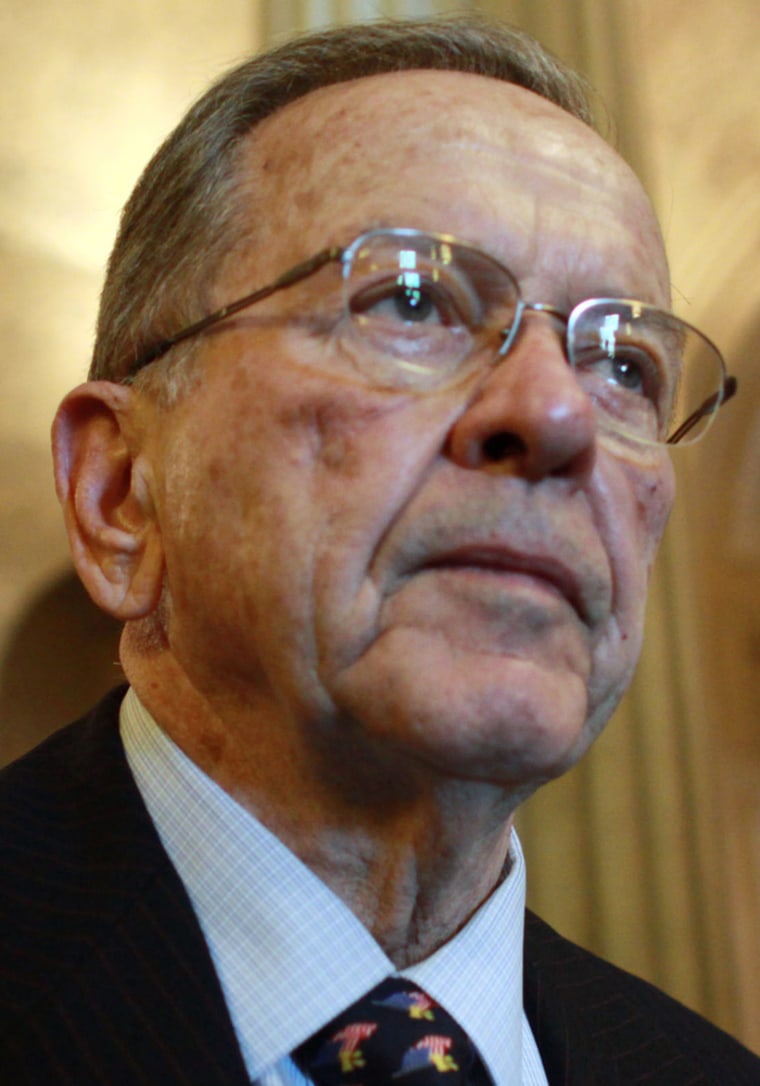
Number 24 is Senator Ted Stevens of Alaska. Although he could move up as we begin to find out more about all that he did -- or had others do for him, like the quarter of a million dollars in remodeling to his house done for him by the VECO Corporation and other oil-field service and contracting companies.
Twenty third on our list of the most financially corrupt American politicians: the Governor of Illinois, prosecuted by U.S. Attorney Patrick Fitzgerald.
No, not Blagojevich, the guy before him: Governor George Ryan -- the third of Blagojevich's six elected predecessors to go to the big house. His crime: a scheme to award trucking licenses to people who didn't really know how to drive trucks, in exchange for bribes.
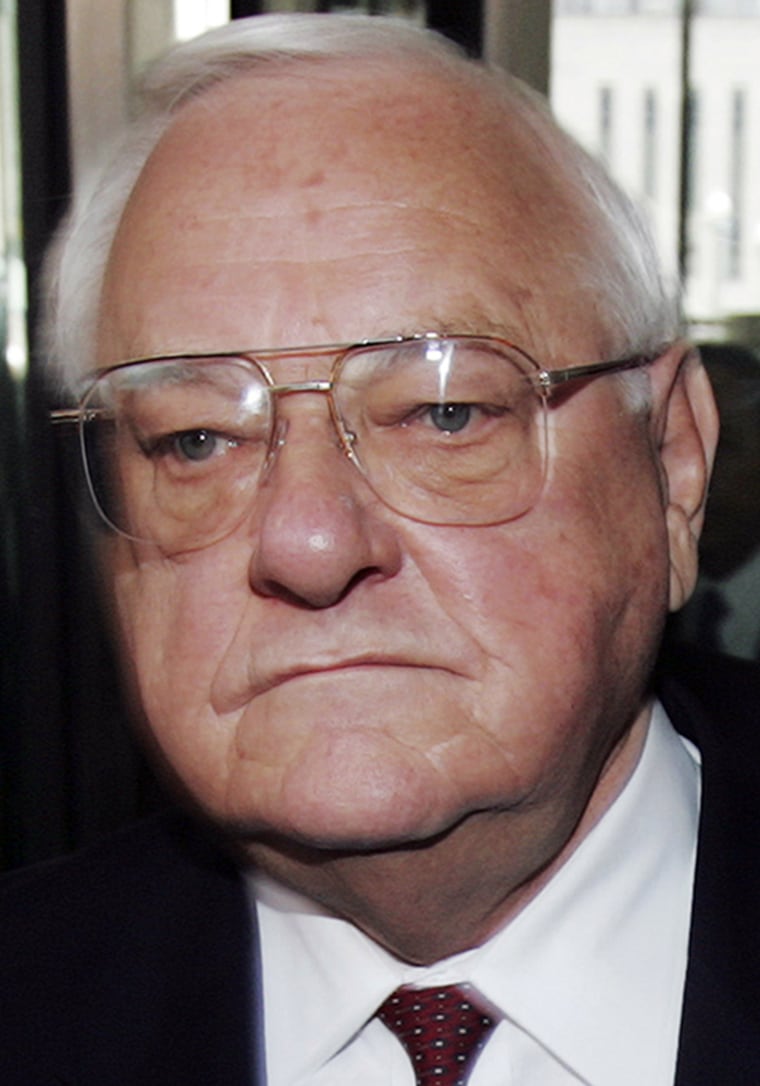
At Number 22: the 1970's Chairman of the House Administration Committee, Wayne Hays of Ohio. His job was obscure, but his colleagues in Congress feared him, because if he didn't like you, he could literally shut off the air conditioning in your office. So nobody said boo when Hays used Administration Committee funds to hire one Elizabeth Ray to be a staff secretary. The scandal only broke when she went to The Washington Post and complained, "I was good enough to be his mistress for two years but not good enough to be invited to his wedding."
Number 21 on our "Blagojevich List" -- another Illinois Democrat; Dan Rostenkowski. His transgressions were bush-league compared to the Governor's, but they did show that same kind of panoramic versatility. He was accused of putting fake employees on his payroll, using Congressional funds to buy gifts like chairs and ashtrays for his friends, and, most bizarrely, getting several thousand dollars worth of stamps from the Congressional Post Office and trading them in for cash.
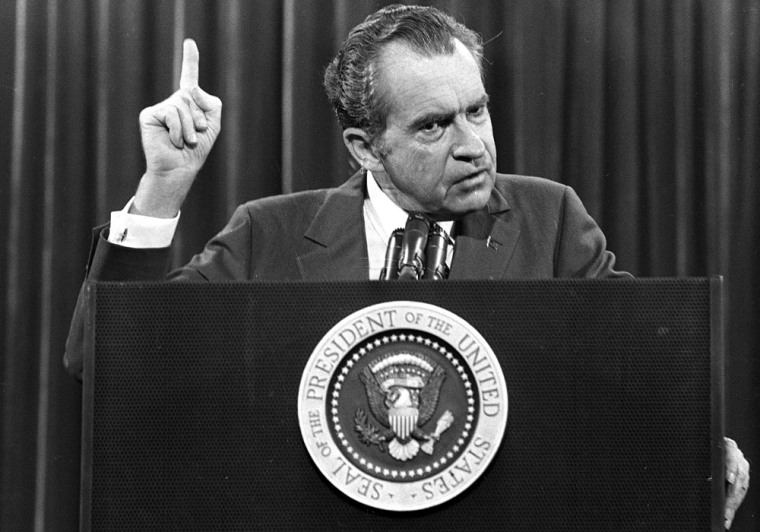
Number 20 would complain that he's on this list. Richard Nixon's primary rationalization for Watergate was that he never took a dime from anybody. Not so in 1952. Two months after being nominated for Vice President, the New York Post broke the story that campaign donors were buying influence from him by providing him with a secret slush fund for his personal expenses. Nixon - about to be kicked off the ticket -- turned the allegation that he'd taken $18,000 in bribes into a televised speech focused on the sob story that his kids had received a "little Cocker Spaniel" which his daughter Tricia, "the youngest," had named "Checkers."
The rest, is history.
If the abuses of Number 19, recent Ohio Congressman James Traficant, had begun and ended
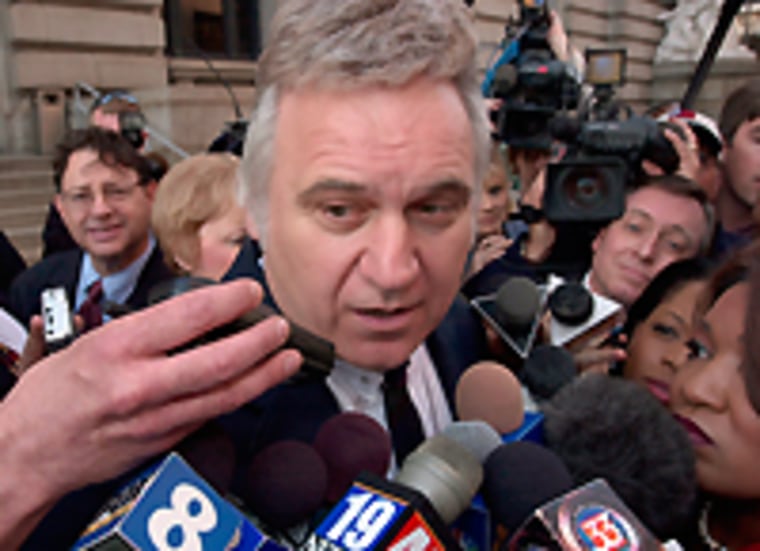
with his hair -- he might still have made the Top 25. But he actually went to jail for filing false tax returns, racketeering, taking bribes, and forcing his Congressional aides to perform chores on his farm and his houseboat.
Eighteenth on the all-time list of American financial political corruption: the dapper mayor of New York in the '30s, Jimmy Walker. Walker's New York was so rancid that innocent people were often pulled off the street and accused of crimes they had not committed, with an array of professional witnesses ready to testify that they did it. An investigation found that at least 51 guiltless women went to jail when they wouldn't, or couldn't, bribe their way out of the extortion scheme. Walker was so guilty he not only resigned as mayor, he resigned and took the first boat for Europe.
Our number 17 is an obscure figure from the most consistently financially corrupt presidential administration ever: Orville Babcock, the personal secretary to President Ulysses S. Grant. He was the lynchpin in the "Whiskey Ring" of 1875, in which Republican politicians, including many connected to Grant, siphoned off millions of dollars in federal taxes on liquor sold in St. Louis. And Chicago. And Milwaukee. And Cincinnati. And New Orleans. And Peoria, Illinois.
At 16, another corrupt member of the Grant Administration: William Belknap, his Secretary of War. At a time when trading outposts in the Wild West were incredibly lucrative, Belknap decided they should be incredibly lucrative for him too. So he sold them to the men appointed as official U.S. Post Traders. Belknap was such a crook that, to this date, he remains the only Cabinet member in history to be impeached!
Coming in at fifteenth on the Blagojevich list, Dusty Foggo. Little more than two months ago he made a plea deal to get out from under a mountain of charges as one of the inside men for the infamous California congressman Duke Cunningham. “Inside" for Foggo was at the CIA, where he was Executive Director. He admitted to one count: taking a bribe to steer an Agency contract to a lifelong friend.
At Number 14 - not necessarily the most financially corrupt of all the Congressmen in our history, but he scores this highly because of the "Colorful Details Factor." The just-forcibly-retired gentleman from Louisiana, Mr. Bill Jefferson, who officially only took $100,000 while hidden FBI cameras rolled. But he took it in 100 dollar bills -- that'd be a thousand hundreds -- and 900 of them would be wrapped neatly in aluminum foil, stuffed inside frozen-food containers, and packed away in the freezer in his home.
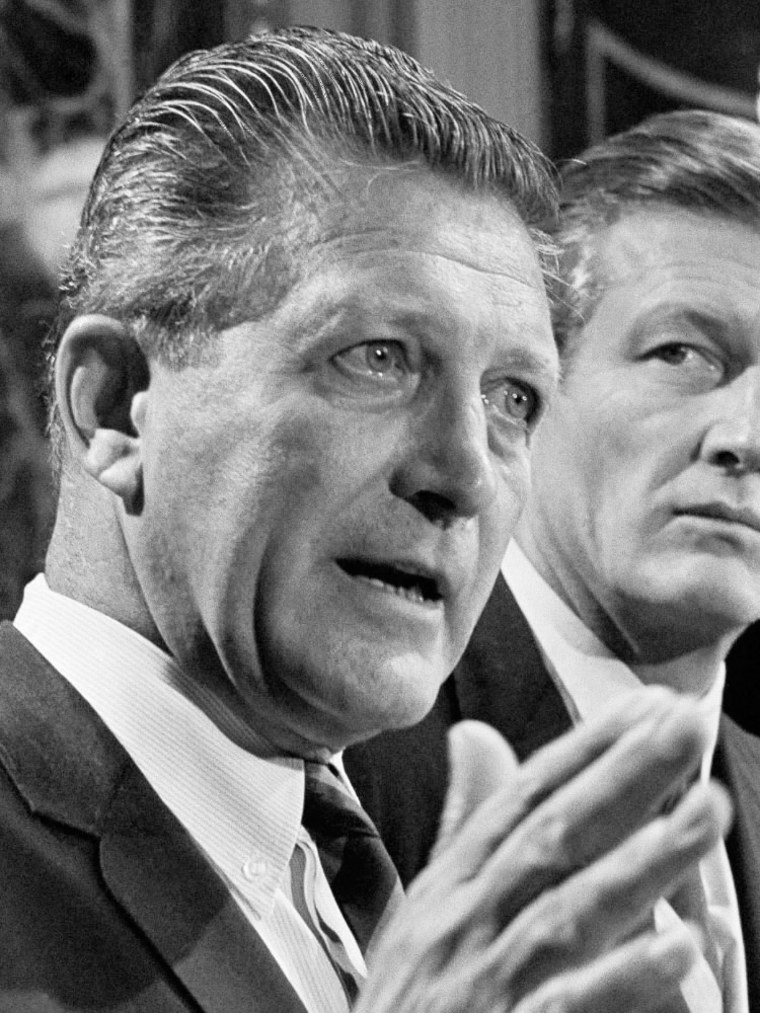
And we complete the first 13 of our 25 most financially corrupt American politicians -- the Blagojevich List -- with, yet another Governor of Illinois. Otto Kerner had already resigned to take a federal judgeship when Marge Lindheimer Everett filed her 1969 income tax returns. On them she had entered a series of deductions - stock in the company she managed, which owned the Arlington Park and Washington Park racetracks. She had given the stock to Illinois Governor Kerner, so he would build two exits off a new expressway near the racetrack, and she believed she had earned the deduction because bribery was "an ordinary and necessary business expense in Illinois."
At Number 12: former House Speaker Jim Wright. The venerable Texas politico was a master at evading the rules about how much a Congressman could make on the side. He was accused of forcing supporters to give his wife a no-show job, and of doubling his fees for speeches by insisting that groups also make bulk purchases of his book, "Reflections of a Public Man."
Placing eleventh, a reminder that you really should be nice to those on the way up, because you'll meet them on the way down: Congressman J. Parnell Thomas, who persecuted Hollywood writers as head of the House Unamerican Activities Committee in the '40s. He was sent to the pen after it turned out that for eight years, he had padded his Congressional payroll with at least five fictional employees, $20 thousand of whose salaries, he kept for himself. Congressman Thomas wound up in the Federal Penitentiary at Danbury, Connecticut -- a couple of cells down from two of the very same Hollywood writers he'd branded as Communists.
Our tenth all-time money-grabbing great? Congressman Andrew Jackson May of Kentucky. During the second World War, ordnance officers throughout the Army were barraged with phone calls from Congressman May, insisting they award war contracts to the Garsson brothers, two businessmen from New York. The Garssons, of course, were paying Congressman May. But it wasn't just the money involved. The Garssons were no good at making military materials. Their mortar shells tended to detonate at the wrong time - they killed at least 38 American soldiers.
At number nine on the list: Simon Cameron, President Lincoln's first Secretary of War. He was the Pete Best of the Lincoln Administration, the fifth member of the "Team of Rivals" -- the one Lincoln fired for corruption after not ten months in office. Lincoln supposedly asked Congressman Thaddeus Stevens about Cameron's honesty and Stevens replied, "I do not believe he would steal a red hot stove." Cameron demanded a retraction, so Stevens said he might have been wrong about that.
As the Secretary of War as the Civil War broke out, Cameron invested heavily in the Northern Central Pennsylvania Railroad, because it had the only tracks going from Harrisburg to Baltimore. Soon, Cameron, the Secretary of War, was shipping U.S. military men and supplies on the railroad largely owned by Cameron, the Investor.
Eighth is the infamous Albert Fall, the Secretary of the Interior in the Harding Administration, and centerpiece of what was, before Watergate, the consensus choice for worst political scandal in U.S. history: Teapot Dome. Fall was not, as legend has it, the man for whom the term "The Fall Guy" was coined, but he got a lot of coin. Naval oil reserves at Teapot Dome, Wyoming, were transferred by President Harding to Fall's Department of the Interior. Fall promptly leased them to oil barons Harry Sinclair and Edward Doheny. They made millions; Fall got first an interest-free loan of $100,000, then another pay-off. This at the time when Babe Ruth only made about $80,000 a year.
Our seventh most financially corrupt, is one of the most overshadowed figures of American political greed: Spiro Agnew, Richard Nixon's vice president. Between 1967, when he failed to report $29,500 in bribes while governor of Maryland, and 1973, when he resigned as V-P to escape jail time, Agnew took at least a hundred grand, almost all of it in cash, and much of it in paper bags, the last few of which were handed to Agnew as he sat behind his desk in the White House.
For pure take-home money -- even in the context of the famous FBI sting in the '80s that laid him low -- number six, Congressman Richard Kelly, Republican of Florida, was hardly the greatest offender; in fact he got the shortest sentence of any of those convicted. But the less-than-ingenious way he took his payoffs in the "Abscam Scandal", combined with the advance of technology, push him near the top of our list. Kelly was convicted after prosecutors produced at his trial, grainy videotape of him taking $25,000 in cash from the FBI agents dressed up as Middle Eastern businessmen and stuffing the money into his coat pockets. The Congressman then turned to one of the agents and asked, "Does it show?"
And now to the top five.
And if you put up an online petition to urge President Bush to pardon you, and in three years
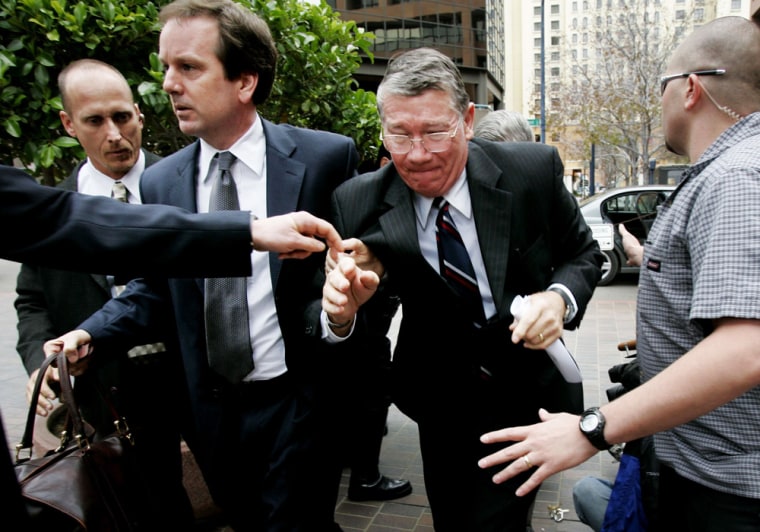
you only get thirteen people to sign it, you have really earned a spot in our corruption Hall of Fame. California Congressman Randy "Duke" Cunningham managed to take so much in illicit cash and merchandise and services that after pleading guilty, he was still required to pay $1,800,000 in restitution. He got a home in Rancho Santa Fe, cash untold, limousine rides, hotel rooms, and - talk about stuffing it into your pants -- prostitutes.
Fourth on our "Blagojevich List" – yet another American Vice-President: Schuyler Colfax was the presumed successor to President Ulysses Grant. But then the "Credit Mobilier" scandal broke, and even the ethically-laissez-faire Grant dropped Colfax from his reelection ticket. Colfax had supposedly done a masterful job concealing his role in the most massive swindle of the 19th Century, the building of intercontinental railroad lines for the Union Pacific. $72 million was spent - $72 million in 1872 money -- but Credit Mobilier built only $53 million worth of rail lines. The scandal was so big, it rocked the U.S. economy.
They got Vice President Colfax on one check -- for just $1,200 bucks.
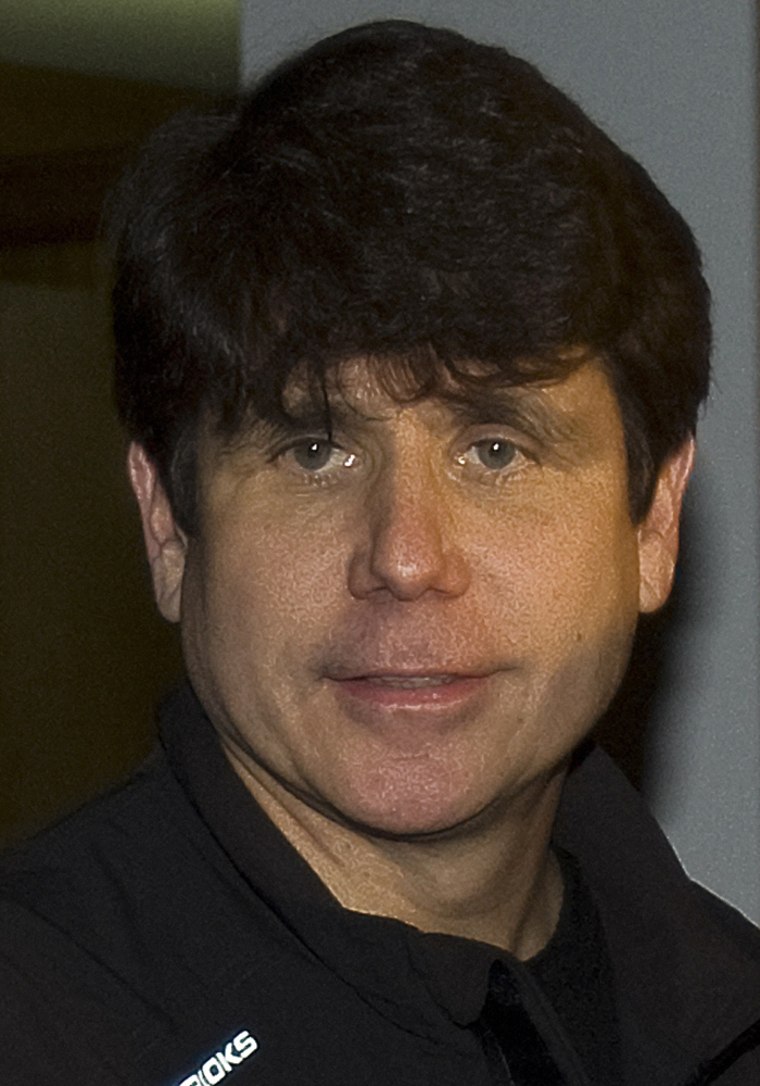
So to third place on the Blagojevich list... and it goes to... Rod Blagojevich!
This is mostly based on degree of difficulty. To think -- in any year after the invention of the first recording device of 1877 -- that you could get away with selling a senate seat, and nobody would find out! Just think what he could've done with a little more time. And a little less wiretapping.
But who could possibly top B-Rod? Well, the runner-up for all-time most financially corrupt American politician is, at number two, probably the most cold-heartedly venal of all our politicians: Charles Forbes, President Harding's choice to head up the then-brand new Veteran's Bureau, in 1921. In his three years on the job, the total budget for the Bureau was $1.3 billion. He embezzled close to 250 million of it.
Forbes sold supplies meant for the vets and kept the money, took huge kickbacks during the building of VA hospitals, and maybe worst of all, he managed to make himself a Colonel in the Army, an especially galling outcome considering he had deserted from the Army in 1912.
And so to the top of the list, and, to paraphrase Sherlock Holmes, the Napoleon of Political Crime: None other than the almost mythical William Marcy "Boss" Tweed.
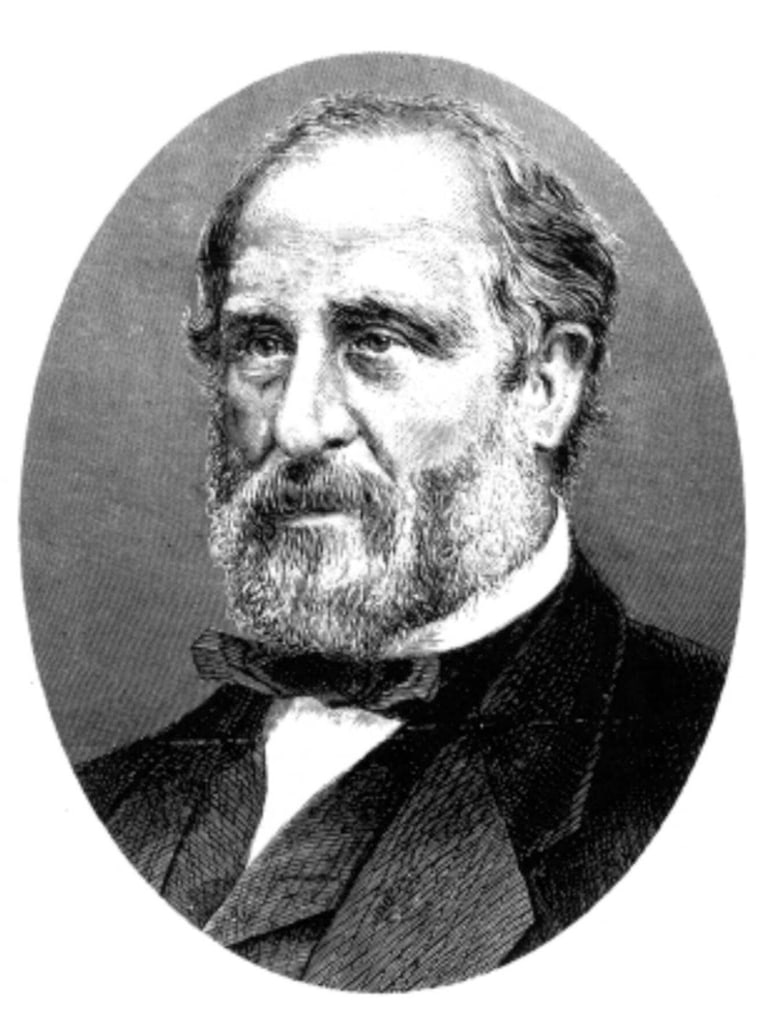
His graft was on the scale of the Gods. All who came before him are comparative trivia; those who have followed, frustrated wannabees unable to emulate the greatest of the great. A simple New York alderman who rose to control the city's political machine and the government itself, he is perhaps best judged by this fact: In two and two-thirds years while all the city's construction work and a thousand employees were under his control, from 1868 to 1870, the debt of the city of New York rose from $36 million to a $136 million. And in that span, there had been almost nothing new built in the city.
The living monument to his blinding felonious brilliance is the Tweed Courthouse, still standing.
Even in the 1870's, the three million dollars it actually cost to build was a phenomenon of largesse. But the city didn't pay three million for it. Your cost? Thirteen million!
When finally arrested in October, 1872, Boss Tweed was held on bail of $8 million -- the 2008 equivalent of bail of $137 million. And because, sadly, he lived long before wiretaps or careless boasting, we will never know exactly how much he stole. But academic research estimates it could have been as much as $250 million -- about $3.2 billion today.
Eat your heart out, Rod Blagojevich!